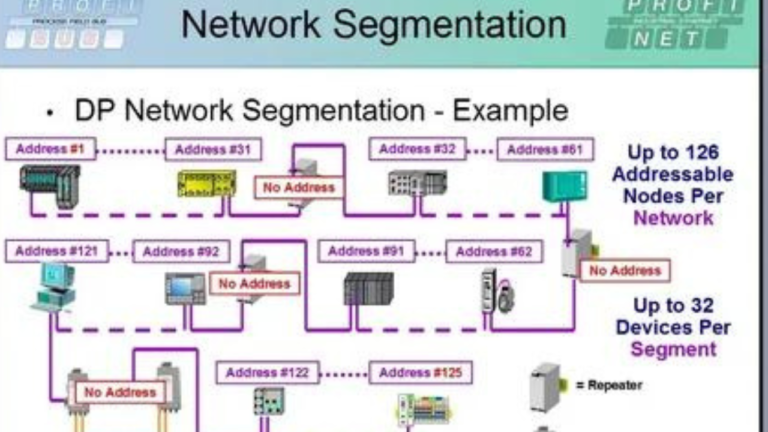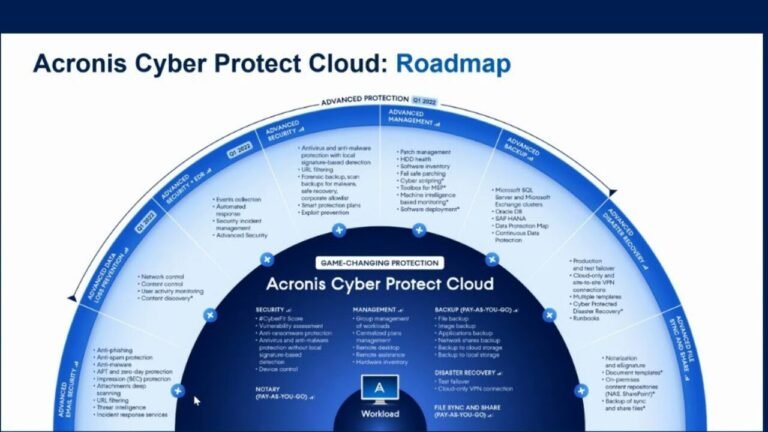Software Engineering: Demystifying the Art of Building Brilliant Software
Software Engineering
Software Engineering The views and opinions expressed in this article are my own, based on my knowledge and personal experiences in the field. I aim to provide an educational and conversational perspective on software engineering for readers of all backgrounds.
Ever wondered how those fancy apps and websites that make our lives easier came into existence? Well, my friends, that’s where the magic of Software Engineering comes into play! As someone who’s been in the trenches of coding and Software Engineering development, let me tell you, it’s a wild ride filled with creativity, problem-solving, and the occasional frustration of dealing with those pesky bugs (because let’s be real, even the best of us make mistakes!).
So, what exactly is Software Engineering? In simple terms, it’s the process of designing, developing, testing, and maintaining software applications. It’s like being an architect and a builder rolled into one, but instead of constructing physical structures, we create digital ones that power our modern world.
What Does a Software Engineer Do?
A software engineer’s job is like being a master chef in the kitchen of code. They take a bunch of ingredients (programming languages, frameworks, and tools) and whip up a delicious software solution that solves a specific problem or meets a particular need.
Some key responsibilities of a software engineer include:
- Analyzing requirements: Before you start cooking, you need to know what dish you’re making and what ingredients you’ll need. Similarly, software engineers gather and analyze requirements to understand the project’s goals and scope.
- Designing the solution: Just like a chef plans out the steps and techniques for a recipe, software engineers design the architecture and structure of the software they’re building.
- Writing code: This is where the real magic happens! Software engineers write the code that brings their designs to life, using various programming languages and tools.
- Testing and debugging: Even the best chefs taste their dishes and make adjustments as needed. Software engineers test their code to ensure it works as intended and fix any bugs or issues that arise.
- Maintaining and updating: Software is like a living organism – it needs constant care and attention. Engineers maintain and update existing software to keep it running smoothly and add new features as required.
Why is Software Engineering Important?
In today’s digital age, software is everywhere – from the apps on our smartphones to the systems running our banks, hospitals, and even rockets! Software engineering plays a crucial role in ensuring that these applications are reliable, efficient, and secure.
Imagine a world without software engineering – it would be chaos! Apps would crash constantly, websites would be a mess, and critical systems like air traffic control or power grids would be at risk of failure. That’s why software engineering is so vital – it helps create order and stability in our increasingly digital world.
Types of Software Engineering
Software engineering is a vast field with many specializations and areas of focus. Here are a few common types:
- Web Development: Building websites and web applications that run in browsers.
- Mobile App Development: Creating apps for smartphones and tablets (iOS, Android, etc.).
- Game Development: Developing video games for various platforms like consoles, PCs, and mobile devices.
- Embedded Systems: Writing software for specialized hardware devices like IoT devices, medical equipment, or automotive systems.
- Enterprise Software: Developing large-scale software solutions for businesses, such as enterprise resource planning (ERP) systems or customer relationship management (CRM) tools.
Skills Needed for Software Engineering
Becoming a successful software engineer requires a diverse set of skills. Here are some of the most important ones:
- Programming Languages: Proficiency in one or more programming languages like Java, Python, C++, JavaScript, or others, depending on your area of specialization.
- Problem-Solving Skills: Software engineering is all about solving problems through code. You’ll need to be able to break down complex problems into smaller, manageable parts and develop efficient solutions.
- Analytical and Critical Thinking: Analyzing requirements, identifying potential issues, and making informed decisions based on data and logic are essential skills for software engineers.
- Attention to Detail: Writing code is like crafting a intricate piece of art – a single mistake can have far-reaching consequences. Attention to detail is crucial to catch and fix errors.
- Teamwork and Communication: Most software projects involve collaboration with other developers, designers, and stakeholders. Strong communication and teamwork skills are essential for success.
Explore Subheadings Related to Software Engineering
Is Software Engineering a Good Career Choice?
Absolutely! Software engineering is a highly in-demand and well-paying field with excellent job prospects. As technology continues to evolve and permeate every aspect of our lives, the need for skilled software engineers will only grow.
According to the Bureau of Labor Statistics, the employment of software developers is projected to grow 25% from 2021 to 2031, much faster than the average for all occupations. This growth is driven by the increasing demand for computer software across various industries, from healthcare and finance to entertainment and e-commerce.
Moreover, software engineering offers competitive salaries and opportunities for career advancement. With experience and specialization, you can explore roles such as lead developer, software architect, or even start your own tech company!
How to Become a Software Engineer?
The path to becoming a software engineer can vary, but here are some common steps:
- Obtain a Relevant Degree: While not strictly necessary, many software engineers hold a bachelor’s degree in computer science, software engineering, or a related field. This formal education provides a solid foundation in programming, algorithms, data structures, and software design principles.
- Learn Programming Languages and Tools: Gain proficiency in one or more programming languages commonly used in your desired area of software engineering. Popular choices include Java, Python, C++, JavaScript, and more. Additionally, familiarize yourself with relevant tools, frameworks, and development environments.
- Build a Portfolio: Develop personal projects, contribute to open-source software, or participate in coding challenges and hackathons. This hands-on experience will not only help you practice your skills but also showcase your abilities to potential employers.
- Gain Practical Experience: Consider internships, co-op programs, or entry-level positions to gain real-world experience in software development. This exposure will help you understand industry best practices, team collaboration, and project management methodologies.
- Continue Learning: Software engineering is a rapidly evolving field. Stay up-to-date with new technologies, programming languages, and industry trends through online courses, workshops, or professional development opportunities.
- Obtain Certifications (Optional): While not mandatory, certifications can demonstrate your expertise in specific programming languages, frameworks, or methodologies, potentially giving you a competitive edge in the job market.
What Programming Languages Should I Learn?
The choice of programming languages to learn depends on your area of interest and the type of software engineering you wish to pursue. Here are some popular programming languages and their common applications:
- Java: Widely used for developing enterprise applications, mobile apps (Android), and various software systems.
- Python: Popular for web development, data analysis, machine learning, and automation scripts.
- C++: Commonly used in system programming, game development, and performance-critical applications.
- JavaScript: Essential for web development, building interactive websites, and creating modern web applications.
- Swift: Designed by Apple for developing iOS, macOS, and other Apple platform applications.
- Go: Gaining popularity for building scalable and efficient systems, particularly in the cloud computing and DevOps domains.
- Ruby: Commonly used for web development, particularly with the Ruby on Rails framework.
It’s advisable to start with one or two languages that align with your goals and interests, and then gradually expand your repertoire as you progress in your software engineering career.
What is the Software Development Life Cycle (SDLC)?
The Software Development Life Cycle (SDLC) is a structured process that outlines the various stages involved in developing high-quality software. It provides a framework for planning, executing, and managing software projects efficiently.
The SDLC typically consists of the following phases:
- Requirements Gathering and Analysis: In this initial stage, software engineers work closely with stakeholders to understand the project’s objectives, requirements, and constraints.
- Design: Based on the gathered requirements, the software architecture, user interface, and overall system design are created.
- Implementation or Coding: This stage involves writing the actual code for the software based on the design specifications.
- Testing: Once the code is written, it undergoes rigorous testing to identify and fix any bugs or issues. This includes unit testing, integration testing, and system testing.
- Deployment: After successful testing, the software is deployed or released for use in the target environment (e.g., production servers, app stores, or user machines).
- Maintenance: Even after deployment, software requires ongoing maintenance to address any issues, add new features, or adapt to changing requirements.
The SDLC ensures that software development follows a structured and disciplined approach, improving the quality, reliability, and efficiency of the final product.
What is Agile Software Development?
Agile software development is a popular methodology that emphasizes flexibility, collaboration, and rapid iteration in software projects. Unlike traditional waterfall approaches, which follow a linear and sequential process, Agile promotes an incremental and adaptive approach to software development.
Key principles of Agile software development include:
- Iterative and Incremental Delivery: Software is developed and delivered in small, incremental iterations or “sprints,” allowing for continuous improvement and adaptation based on feedback.
- Cross-Functional Teams: Agile teams consist of cross-functional members with various skills (developers, testers, designers, etc.) who collaborate closely throughout the project.
- Customer Collaboration: Agile methodologies emphasize frequent communication and collaboration with customers or stakeholders to ensure their needs are met and to prioritize requirements.
- Responding to Change: Agile processes are designed to embrace change and adapt to evolving requirements or circumstances throughout the software development lifecycle.
- Continuous Improvement: Agile teams regularly reflect on their processes and practices, identifying areas for improvement and implementing changes to enhance efficiency and quality.
Popular Agile frameworks include Scrum, Kanban, Extreme Programming (XP), and Lean Software Development. These frameworks provide specific practices and structures for implementing Agile principles in software projects.
FAQs
What is the difference between software engineering and computer science?
Software engineering focuses on the practical application of principles and techniques to design, develop, and maintain software systems. It encompasses the entire software development lifecycle, from requirements gathering to deployment and maintenance.
Computer science, on the other hand, is a broader field that involves the study of theoretical and practical aspects of computing, including algorithms, data structures, programming languages, computer architecture, and more. It provides the foundational knowledge and principles upon which software engineering is built.
While there is overlap between the two disciplines, computer science leans more towards the theoretical and academic side, while software engineering is primarily concerned with the practical aspects of software development and its real-world applications.
Is coding the only aspect of software engineering?
No, coding or programming is just one part of software engineering. While writing code is a crucial aspect, software engineering encompasses a wide range of activities and responsibilities, including:
- Requirements gathering and analysis
- Software design and architecture
- Project management and planning
- Testing and quality assurance
- Software deployment and maintenance
- Collaboration with cross-functional teams
- Documentation and knowledge sharing
Effective software engineers must possess a diverse skill set beyond just coding, such as problem-solving, critical thinking, communication, and a deep understanding of software development methodologies and best practices.
What is the difference between software engineering and web development?
Software engineering is a broader discipline that encompasses the principles, practices, and processes involved in the entire software development lifecycle, from conception to deployment and maintenance. It covers various domains, including web development, mobile app development, embedded systems, enterprise software, and more.
Web development, on the other hand, is a specialized area within software engineering that focuses specifically on building websites, web applications, and web-based software systems. Web developers use languages like HTML, CSS, JavaScript, and various web frameworks and technologies to create and maintain web-based solutions.
While web development is a crucial part of software engineering, software engineers may work on a wider range of software applications and systems beyond just web-based projects. Additionally, software engineering involves more comprehensive activities, such as software architecture, project management, and quality assurance, which go beyond the scope of web development alone.
Conclusion
Software engineering is a fascinating and ever-evolving field that lies at the heart of our digital world. From the apps that entertain us to the systems that power our industries, software engineers play a vital role in shaping the technology that makes our lives easier and more efficient.
Whether you’re a seasoned pro or just starting your journey, the world of software engineering offers endless opportunities for growth, innovation, and problem-solving. So, embrace the challenge, sharpen your skills, and get ready to create the next big thing that will change the world – one line of code at a time!





nostrum consequuntur voluptatum aliquid architecto facere vitae ut accusamus est culpa. nemo debitis officiis adipisci laborum fugit qui aspernatur. pariatur consectetur animi fuga culpa aut neque velit occaecati officia quia veritatis repellendus. ut ipsa qui quia. repudiandae eius sit sit itaque qui id quia est atque voluptatem consequatur quis maiores maiores sed.